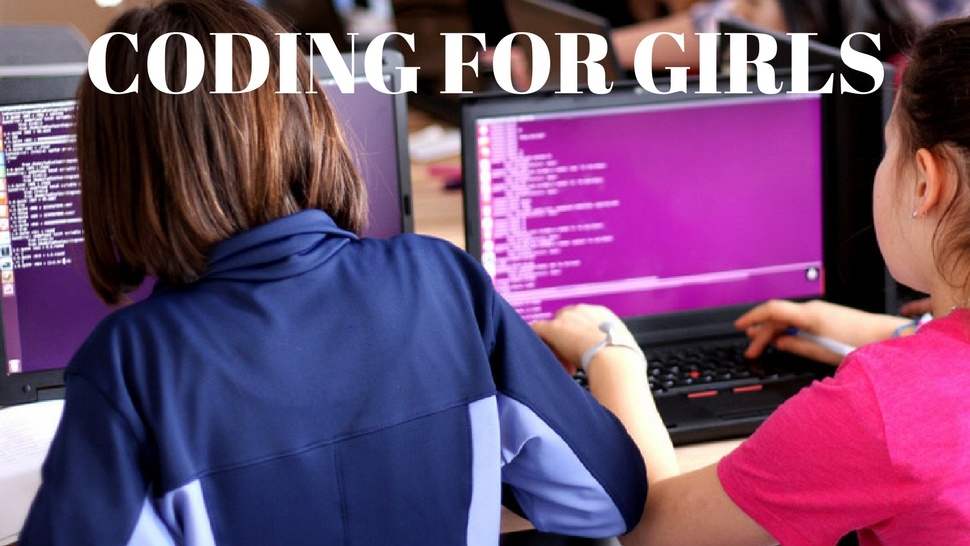We all know that Women's Day is celebrated on March 8th. But how familiar to us is the fact that the International Day of Girls in ICT is celebrated every fourth Thursday in April? Or, in other words, how many girls do we know that coding, developing web applications, websites, or mobile applications?
Not much, you will admit. With honor exceptions, of course.
However, in celebrating that day, launched in 2011 by the International Telecommunication Union (ITU), more than 240,000 girls, girls and young women have participated in 7,200 events organized in 160 countries Worldwide. This data is encouraging, as the main idea of celebrating that day is that as many young women at the global level are encouraged to develop the career in the field of information and communication technologies (ICT). However, there are still fewer women in the IT industry.
In this text, we present you the current situation when it comes to girls in the IT sector.
GIRLS IN THE WORLD INTERESTED IN STEM, BUT NOT FOR LONG.
A recent study, conducted by Microsoft in 12 European countries, showed that an increasing number of girls aged 11.5 years expressed interest in the fields of science, technology, engineering and mathematics (Science, Technology, Engineering, and Mathematics, STEM), but by the age of 15, this enthusiasm fills. Why? Because, according to research results, girls and young women often do not have enough confidence because they think that "men are better at programming than them."
The results of the aforementioned Microsoft study, which included 11,500 girls and young women aged between 11 and 30, were conducted in Belgium, the Czech Republic, Finland, France, Germany, Italy, Ireland, the Netherlands, Poland, Russia, Slovakia and the United Kingdom, point to the steps that should be taken to prevent a drop in interest among girls during their teenage years. Some of these steps include highlighting better models, supporting parents and teachers to deal with science and technology, and the application of acquired knowledge in practice.

Coding may sound abstract, and many may be unfamiliar, but if we do not understand something ourselves, it does not mean that our children do not need to know anything about it either. Because knowledge is power, is not it? And, how is it best to learn, but through the game?
Learning programming skills, starting from the youngest age, directly develops logic in children, teaches them how to solve problems, make decisions, balance the time spent with the efficiency of the outcome, the number of steps required to reach the goal and much other useful knowledge. All of these are quite important skills for everyday functioning, both for children and adults, especially given the ever faster development of technology.
BOOKS THAT CHANGE THE WORLD
Although research has shown that about 11.5 years old girls are interested in science and technology, it's not a waste of being familiar with programming or learning encryption skills at an even younger age. This was also understood by the authors of numerous books on coding intended for girls, already for the age of four to six years, through elementary school days, to adolescence.
We present some of the most interesting books for girls and girls who, in a humorous way, through interesting adventures of the main characters, draw attention to children and parents that female characters in children's novels do not always have to be tailored to the pattern of rooted stereotypical insights.
Hello, Ruby: Encryption adventures
As a programmer, illustrator and founder of Rails Girls, Linda Liukas is more than competent to talk about coding for girls, which she often does during her speeches at conferences around the world. In addition, she is also the author of an interesting application for children, which is followed by the book Hello, Ruby. In fact, it's about two books - booklets and a workbook, intended for the youngest. The Ruby girl's coding book adventure, named after the Ruby programming language, has become a book for children in which Kickstarter's the biggest amount of money has been invested so far. Instead of the originally planned US $ 10,000, a total of $ 380,747 was collected in a very short time.

Detective Dot
The fact that in fairy tales for children there are zero percent of princesses who are professional engineers, and only 2.9 percent are black skin figures, Sophie Deen has decided to create the whole fictional world in the center of Detective Dot, an eight-year-old black girl who heads the so-called Children Intelligence Agency (CIA) and solves mysterious cases around the world. In this, her friends are helping her, like her mobile phone that is alive, and her task is to encode the solution.
Girls Who Code: Learn to Code and Change the World
In addition to the book Girls Who Code: Learn to Code and Change the World, designed for girls aged eight to twelve, this is a kind of global movement that is Reshma Soujani launched with the goal of overcoming gender gap in the IT sector. So far, more than 40,000 people have joined this organization, mostly women. The book is illustrated and in a comprehensible way gives readers an insight into the basics of computer programming.
And as we have said, the girls who code are not just one book. An additional series of 13 children's novels have been designed, which in different ways refer girls to the subject of digital technology.
Lauren Ipsum
Lauren Ipsum is the name of a heroine of the eponymous novel, which actually alludes to text in Latin, which begins with the words Lorem ipsum, which is well known to every graphic and web designer, because it is most often used as the so-called master, or generic text and is placed in the place of the future actual text in order to make it within the framework of the design prototype that the final solution will look, and that the actual text does not distract attention from the visual impression.
Lauren Ipsum, on the other hand, also attracts attention, especially among girls of the elementary school, because she is the heroine of the graphic novel by Carlos Bueno and is in a kind of Wonderland. The story starts when Lauren is lost in the so-called Userland and has to use all of the knowledge of IT and logic to find the way home.

CONCLUSION
Everything is, in fact, quite simple.
If, say, a girl at eight years old expresses the desire to deal with mathematical tasks in the future in order to come up with the most effective solution to the subject, as her favorite heroine Lauren Ipsum does, she should not have understood it lightly. Is there anything strange about it? Does not have. Nothing strange than, say, a boy who wants to become Batman. No one boy (unfortunately) can really be Batman when he grows up, but every girl can be a programmer if he wants to. It depends only on her personal interests, talents, and knowledge.
Bearing in mind that besides all of the above, a large number of free online coding courses are available, which can be a great choice for learning programming languages, there is no reason not to have more girls and women working in the IT sector in the future.
Follow me on Twitter - @SrdjanKali.




Share the News